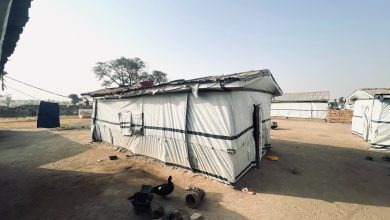ICRC Brings Mobile Clinics to Flood-Affected Communities in Maiduguri
The ICRC has launched a post-flood medical intervention in Borno State, deploying mobile clinics to assist flood-affected communities with urgent health needs. However, as the outreach continues, more unexpected challenges have emerged.
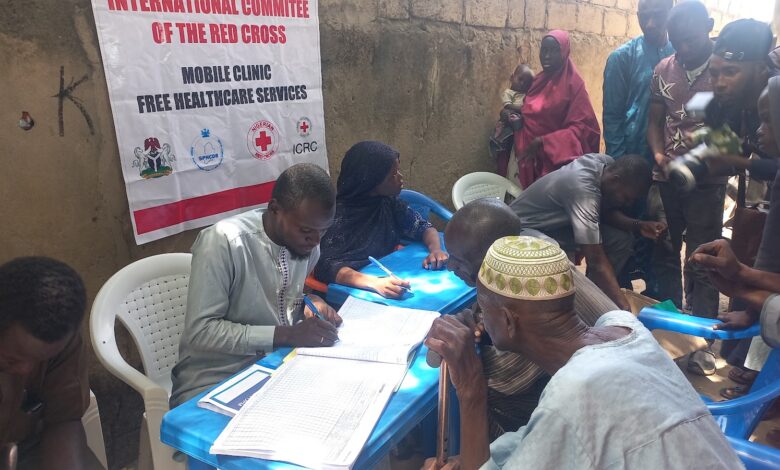
In the aftermath of the recent devastating floods in Maiduguri, Borno State’s capital in northeastern Nigeria, the International Committee of the Red Cross (ICRC) has rolled out a mobile clinic programme to address the health crisis facing the affected communities.
The mobile clinic, deployed weeks after the flooding, began operations in three of Maiduguri’s most affected areas. With cholera outbreaks already declared by the state’s health ministry, the ICRC’s immediate priority was to contain the spread of infectious diseases. However, as the initiative unfolded, medics encountered various other health challenges among the residents.
Dr Rabeea Haida, Head of the ICRC’s Health Delegation in Maiduguri, noted that the mobile clinic project aims to achieve more than just treating patients: “The essence of the mobile clinic, aside from providing medical services, is to make the people aware of the prevention of disease outbreaks. We are targeting the whole community.”
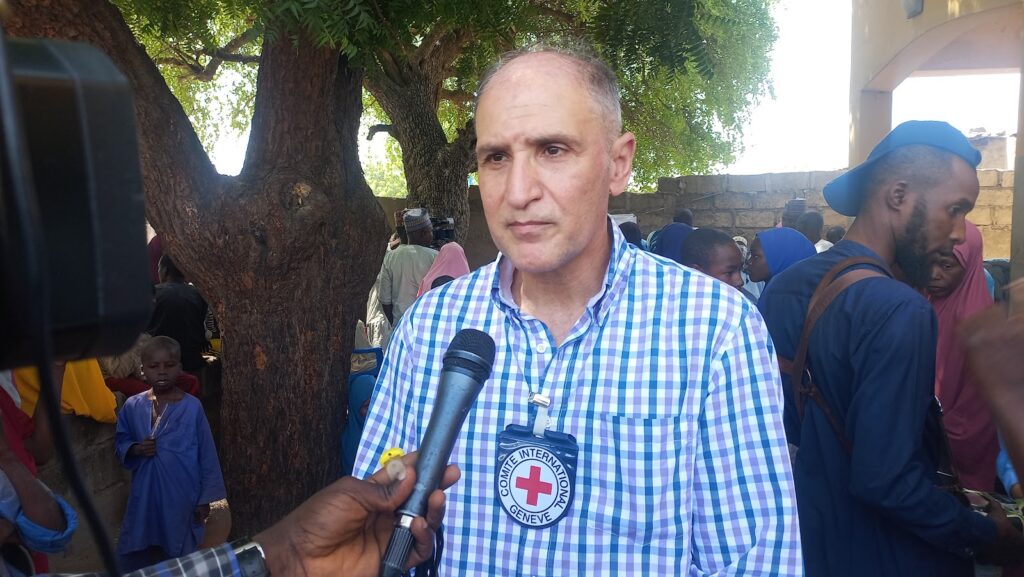
At several clinic sessions, HumAngle observed many patients with complaints of fever, chronic stomach aches, skin diseases, and other conditions requiring referrals to more specialised healthcare facilities.
Ali Bulama Abba-Kura, a 25-year-old trader from Simari, a community in the metropolis, attributed many of the health issues to the flood’s aftermath. “The flood submerged the entire neighbourhood, forcing us to flee,” he recounted. “When we returned, we found many unidentified corpses floating in the yet-to-be-receded water. The flood has not only devastated our livelihoods but has also left us with urgent health challenges.”
Of high demand, overwhelmed staff and systemic issues
Zara Muhammad, a mother of seven, brought her family to the Simari clinic, where she reported that they were all suffering from fever. “We have no means of getting medications, so we have to rush down here to get the free service being offered,” she said, highlighting the dire situation many families find themselves in as they struggle to access basic healthcare.
“The demand for medical assistance has been overwhelming,” Nurse Hannatu Kachala, who oversees one of the mobile clinics, told HumAngle. “Over 350 patients turned up in the first four days alone. The most common ailments are malaria and diarrhoea. When a patient comes to us, we carry out routine checks. If they require care beyond what we can provide here, we refer them to the main primary healthcare centre.”
One patient, Maryam Umar, a 22-year-old mother of four, shared her distressing experience: “I came here to get medications for my stomach aches, which have made my stomach bloated with pain for days. This condition has become more common since our return after the flood.”
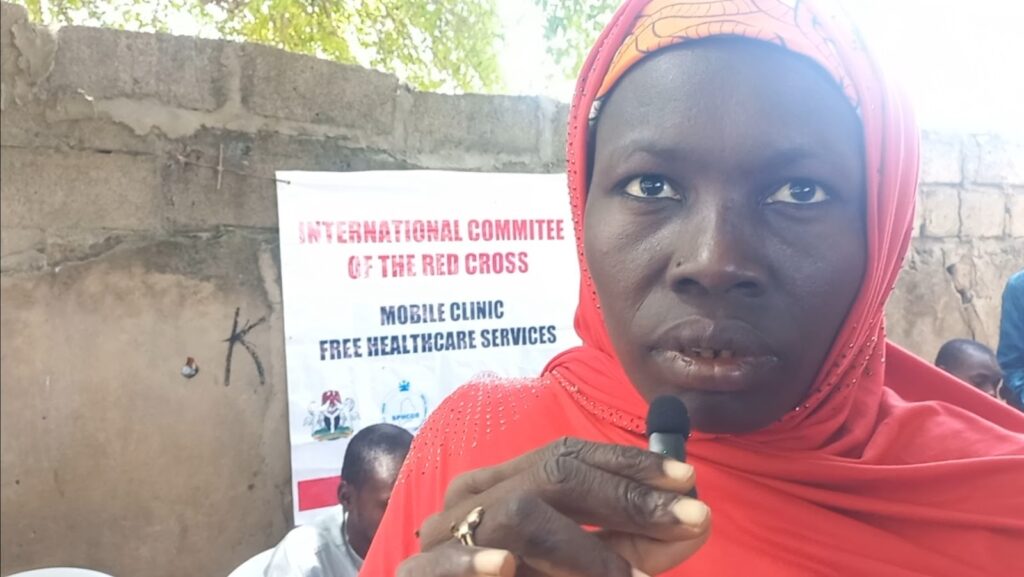
Hauwa Bukar, a mother of five, arrived at the mobile clinic with her daughter, who was suffering from a scaly scalp. “My daughter has been battling with this ailment for over two weeks now,” she said, revealing the desperation many feel as they seek help for ailments that have lingered without treatment.
While the mobile clinics are crucial for immediate health care, they have also underscored these communities’ systemic challenges. Many residents struggle with poor sanitation and lack of clean water, which compounds health risks.
Dr Haida emphasised the importance of treating the sick and addressing the underlying causes of disease outbreaks: “We encourage personal and environmental hygiene among our patients. Without these essential practices, we cannot hope to prevent future outbreaks,” he stated.
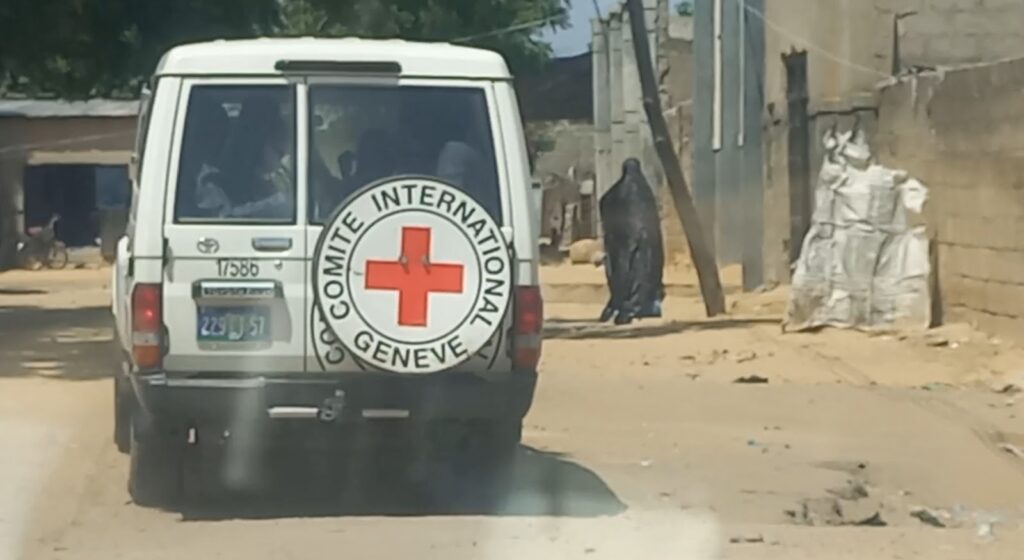
The ICRC initiative is set to run for two months, with plans to assess its impact and potential expansion. Dr Haida acknowledged the difficulty of reaching all communities given limited resources: “The main challenge is accessing more beneficiaries,” he said. “The resources are limited, and it’s difficult to cover all the needs.”
He further noted that the ICRC remains committed to adapting its services based on the needs of its communities. “We will adjust our services based on what we learn during this outreach,” Dr Haida added.
Community Leaders Call for Expanded Support
Bulama Abbakura, a visually impaired and Simari’s Village Head, expressed gratitude for the ICRC’s intervention but stressed that broader support is required.
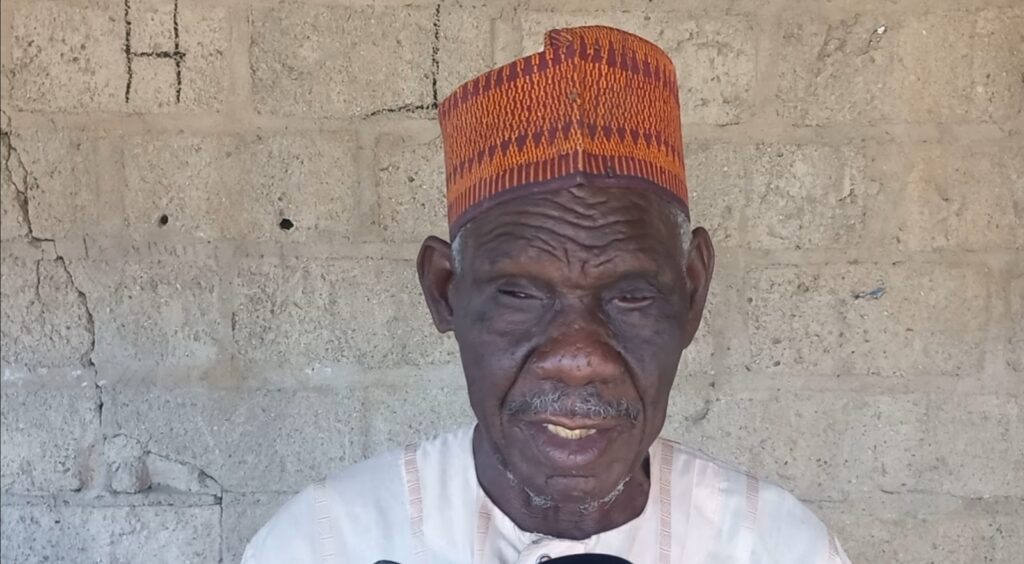
“The flood has further impoverished us, greatly impacting our well-being as a community. Medical support is crucial in alleviating our suffering, but we also need help repairing our homes and providing food. These essentials are necessary for the medications to be effective for the sick. We require comprehensive support,” he added.
In response to severe flooding in Maiduguri, Nigeria, the International Committee of the Red Cross (ICRC) initiated a mobile clinic program to address urgent health needs exacerbated by the disaster.
The initiative, focusing on three heavily affected areas, prioritizes containing infectious diseases such as cholera, while also tackling a range of other health issues reported by residents.
Dr Rabeea Haida, leading the health delegation, emphasizes that the clinics aim to treat patients and enhance awareness about disease prevention across communities.
Although overwhelmed by the demand—650 patients in the first four days—the clinics face challenges including limited resources and systemic issues like poor sanitation and lack of clean water. Simari's Village Head expressed gratitude for the medical aid but highlighted the need for broader support in rebuilding homes and food provision to enhance community recovery.
Support Our Journalism
There are millions of ordinary people affected by conflict in Africa whose stories are missing in the mainstream media. HumAngle is determined to tell those challenging and under-reported stories, hoping that the people impacted by these conflicts will find the safety and security they deserve.
To ensure that we continue to provide public service coverage, we have a small favour to ask you. We want you to be part of our journalistic endeavour by contributing a token to us.
Your donation will further promote a robust, free, and independent media.
Donate HereStay Closer To The Stories That Matter



